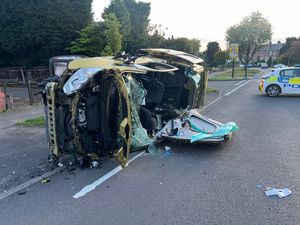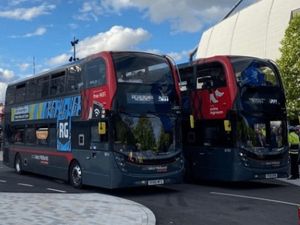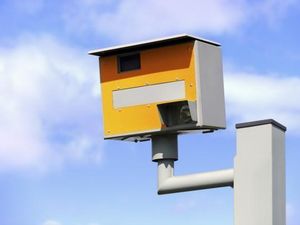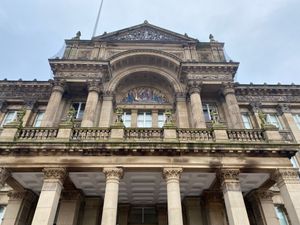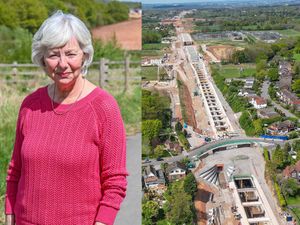Cracks, delays and disruption: What is going wrong at West Midlands Metro?
The timing could scarcely have been worse. At a time of soaring petrol and diesel costs, and just four months before the opening of the Commonwealth Games, the entire West Midlands Metro system has been suspended indefinitely after more cracks appeared in tram cars.
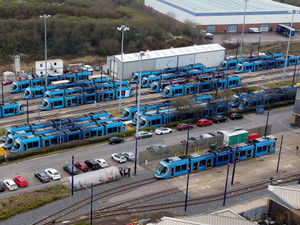
It is the third time the service has been suspended in just nine months due to faults with the CAF Urbos 3 trams, which were introduced in 2014 to replace the older AnsaldoBreda T-69s.
West Midlands metro mayor Andy Street could barely contain his frustration this week when he issued a terse speech saying he had held a frank conversation with the chief executive of the tram manufacturer.
"I have spoken to the CEO of CAF to impress upon him the need for our trams to be safe and reliable," he said.
"I know this is deeply frustrating for customers who rely on the Metro and I am holding those responsible for both manufacturing and operating the trams to account.
"I get how inexcusable this is. If I’m honest I’m not in the business of sacking people yet. I’m in the business of getting this repaired and back into service."
Mr Street added that he had launched a full investigation as to how the situation had arisen, although he said it was too early to say if any action would be taken.
"We’re looking if anything has gone wrong with Midland Metro or the manufacturer where there is accountability for this. If anything is found of course it will be followed through. It would be completely unreasonable for me to say without the evidence."
To say that it has been a difficult few years for the Metro would be something of an understatement. The problems with the tram cars, which first manifested themselves in June last year, came at the same time it was revealed that the tracks between Birmingham Snow Hill and New Street stations were being replaced after just five years' service.
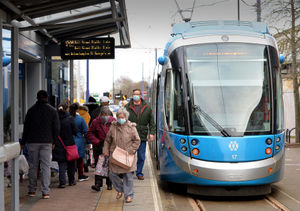
Michael Anderson, Metro programme director for Transport for West Midlands, said the new track would improve the ride quality of the service. But it begged the question as to why the original 1,200-yard track was being pulled up so soon after it had been installed at a cost of £75 million.
The £33m extension of the Metro to Wolverhampton railway station has also been beset by delays, originally scheduled for completion in spring 2019, but with the first tram yet to run four years after work started. Similarly, the Westside extension of the line to Hagley Road, Edgbaston, was due to have been up and running by the end of last year, but is now not expected to open until June.
The line into Wolverhampton city centre was also shut for six months in 2017 while the track along Bilston Road was replaced.
Wolverhampton South East MP Pat McFadden fears the latest disruption will lead to a long-term loss of confidence in the Metro.
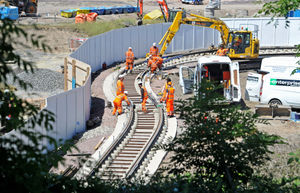
"I have had constituents say to me that they will not use the Metro because if they walk up to the station, they know is is as likely as not that services will be cancelled," he says.
"The whole point of having a public transport system is that it is predictable, consistent and reliable, and at the moment it is anything but.
"Those responsible have really got to get to the bottom of this, and ensure it is fixed once and for all."
Mr McFadden says the suspension of the tram system coupled with the rising cost of petrol and diesel represented a crushing double-whammy for hard-pressed commuters.
"If the effect of this is to force people into their cars, that is not just going to be more polluting and cause more congestion, it is also going to be much more expensive than it would have been in the past," he says.
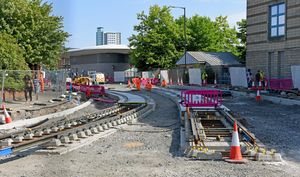
Stuart Anderson, MP for the neighbouring Wolverhampton South West constituency, also voiced frustration with the situation.
"I'm not happy," he says. "I want to see the trams up and running as quickly as possible. It needs to be safe, that has to be the priority, but I want to see it rectified as soon as possible."
The current fleet of Spanish-built CAF Urbos 3 trams was ordered in February 2012, with the then West Midlands Passenger Transport Executive placing an order for 20 new vehicles at a cost of £40 million.
The first of the new trams was unveiled at the Wednesbury depot in October 2013, but the first four did not enter service until September 2014.
While the new, larger trams increased the capacity from 156 to 210 passengers per car, they also required the network to be shut for two weeks while the platforms were narrowed by six inches to accommodate them. The older T-69s, which were still in service at that time, had their footplates extended by six inches to fill the gap.
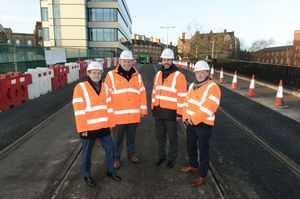
The first signs of problems with the Urbos 3s emerged in December 2017, when the Besançon Tramway in France discovered cracks in the bogie box areas of the bodywork. In December 2020 CAF paid for remedial work to be carried out, although this meant that each tram was out of action for a month while the work was carried out.
It was on June 11 last year that similar problems were discovered in the West Midlands, with the operator forced to suspend services for the first time while investigations were carried out. Again, the timing was unfortunate, coming just as Birmingham introduced its clean-air zone charges.
Services were resumed after four days, although in greatly reduced form with services restricted to the stretch between Wolverhampton St George's and Bull Street Birmingham, at 10-minute intervals.
But it soon became clear that the problem was much more serious than first suspected. On November 12 the Midland Metro Alliance announced the trams would be suspended for a second time after more cracks were discovered. Services resumed – on a reduced basis – on December 15, although it was several weeks before all the trams were pressed back into service.
It also emerged that West Midlands Metro had removed a tram from service in December 2019 – 18 months before the problem was made public – after discovering cracks had appeared. The operator is thought to have repaired the tram and pressed it back into service.
By this time, stories were beginning to appear about similar problems with Urbos 3 trams in other countries. In November 2021 a tramline in Sydney was decommissioned for up to 18 months, due to serious design flaws in all 12 of the CAF Urbos 3s tram running on the line. Cracks were also discovered on trams in Belgrade.
Warley MP and former transport minister John Spellar criticised the decision to buy foreign-built trams, saying the problem would have been easier to resolve if the public transport authority had bought British.
He said: "There is no doubt that when cracks first appeared they should have looked at the situation very seriously. But that is the problem if you have a fleet made abroad. That’s why they should have bought from a British firm in the first place.
“That would have enabled them to work with the manufacturers much more easily. It is much easier to get across to Derby and sort it out with Bombardier than all the time having to deal with a firm abroad.
"Once again it’s a case of short-term savings and long-term costs. When will they ever learn?”

